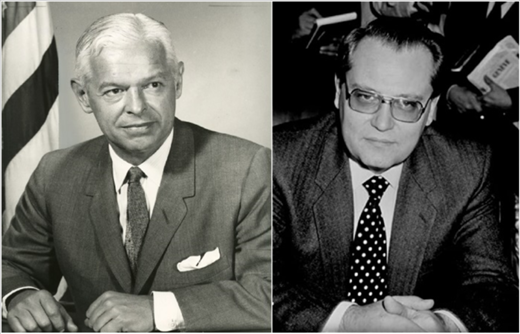Lee Knowlton Blessing (born October 4, 1949) was born in Minneapolis and graduated from Minnetonka High School in 1967. He began his college education at the University of Minnesota, Minneapolis, but later transferred to Reed College in Oregon where he earned a B.A. in English in 1971.
After Blessing earned his degree, his parents offered the young graduate the choice between a used car or a trip to Russia. Blessing chose Russia where he found inspiration to write his best-known work, the award-winning A Walk in the Woods. According to interviews with Blessing, the play, which depicts the developing relationship between a Russian and an American arms limitation negotiator is based on fact. Following its premiere in Waterford, Connecticut, A Walk in the Woods was nominated for both a Tony award and a Pulitzer Prize. Though the production won neither award, it was reprised and produced in Moscow in 1989 and later adapted for television.
"Lee (Knowlton) Blessing." Contemporary Dramatists.
 Lead Negotiators: Paul H. Nitze and Yuli A. Kvitsinsky
Lead Negotiators: Paul H. Nitze and Yuli A. Kvitsinsky
(Photo Credits: Behind the Arras)
The Soviet Union and United States agreed to open negotiations and preliminary discussions, named the Preliminary Intermediate-Range Nuclear Forces Talks, which began in Geneva, Switzerland, in October 1980.
Paul Nitze, an experienced politician and long-time presidential advisor on defense policy who had participated in the SALT talks, led the US delegation after being recruited by Secretary of State Alexander Haig. Yuli Kvitsinsky, the second-ranking official at the Soviet embassy in West Germany, headed the Soviet delegation.
Between 1981 and 1983, American and Soviet negotiators gathered for six rounds of talks, each two months in length—a system based on the earlier SALT talks. There was little convergence between the two sides over these two years.
In the summer of 1982, Nitze and Kvitsinsky took a "walk in the woods" in the Jura Mountains, away from formal negotiations in Geneva, in an independent attempt to bypass bureaucratic procedures and break the negotiating deadlock. Nitze later said that his and Kvitsinsky's goal was to agree to certain concessions that would allow for a summit meeting between Brezhnev and Reagan later in 1982.
Nitze made an offer to Kvitsinsky that might break the impasse. While Kvitsinsky was skeptical that the plan would be well-received in Moscow, Nitze was optimistic about its chances in Washington. The deal ultimately found little traction in either capital. In the United States, the Office of the Secretary of Defense opposed Nitze's proposal, as it opposed any proposal that would allow the Soviet Union to deploy missiles to Europe while blocking American deployments. Nitze's proposal was relayed by Kvitsinsky to Moscow, where it was also rejected. The plan accordingly was never introduced into formal negotiations.
"Intermediate-Range Nuclear Forces Treaty." Wikipedia.com.